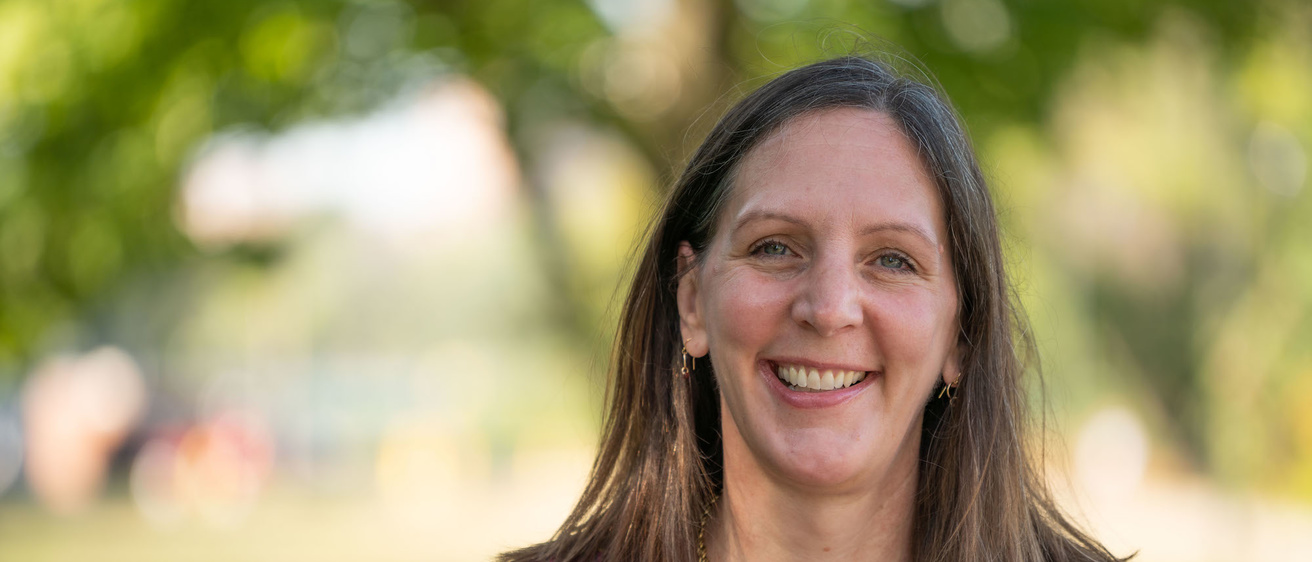Maia Sheppard, a new assistant professor in social studies education, wants to help students learn to address difficult topics in their classrooms.
Sheppard earned her Master of Arts in international education in 2001 from New York University. She then earned her Ph.D. in curriculum and instruction from the University of Minnesota in 2010. Prior to coming to the College of Education Sheppard was an assistant professor and coordinator of the secondary education and social studies programs at George Washington University. Sheppard has also served as a classroom teacher in Minnesota, New York City, and rural Namibia.
Her research interests explore the teaching and learning of difficult histories, such as slavery and genocide, and how teachers navigate emotions in the social studies classroom.
“Teachers make important decisions about how students make sense of the past. Whose histories do we remember and why? The questions teachers ask, the resources they bring into the classroom, the choices they make about how students use their historical knowledge – all have important implications for how young people see the power of the past in their own lives,” says Sheppard. “There are so many difficult and controversial events to talk about in social studies that evoke emotions and tension that teachers often find difficult to manage. My research looks at how we talk about, think about, and help students make sense of the past in ways that help them better navigate our world today. I look at why we study those difficult issues and how it can be done well.”
Sheppard became interested in this research after spending six years as a classroom teacher and seeing how much of the social studies curriculum was teaching about war, oppression, and suffering, and seeing the diverse responses her students had to those histories. She wanted to better understand how students were making sense of the past and the role of teachers in that process.
In her new role, she is committed to supporting students as they become professionals and leaders in education communities. She is looking forward to collaborating with teachers to address significant local, national, and global issues in social studies curriculum, teaching and learning.
“I would like my students to see themselves as decision-makers who have the knowledge and skills to best support their students. I want my students to be critical of the materials they use and the curriculum they are given. I hope as teachers they will be able to engage their students in learning that acknowledges multiple perspectives, challenges dominate narratives, prepares them for civic life in a democracy, and encourages them to work for a more just world,” says Sheppard.
